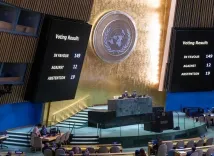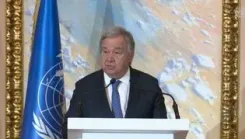Is South Korea's Prime Minister Nominee Meeting Food Leaders Over Price Hikes?

Synopsis
In a proactive move to address the escalating consumer prices in South Korea, Prime Minister nominee Kim Min-seok will convene with food industry leaders this week. The meeting aims to devise strategies to combat inflation, with alarming statistics highlighting the rising costs of processed foods and restaurant meals. How will this meeting shape the future of food pricing in the nation?
Key Takeaways
- Prime Minister nominee Kim Min-seok is engaging with food industry leaders.
- The meeting aims to address soaring consumer prices.
- Over 60 companies have raised food prices in the last six months.
- Public concerns about inflation are rising, with 60% of people identifying it as a key issue.
- The Ministry of Agriculture will participate in discussions.
Seoul, June 12 (NationPress) The nominee for South Korea's Prime Minister, Kim Min-seok, is set to engage with leaders from the food and restaurant sectors along with experts this week to tackle the issue of rising consumer prices and explore possible solutions, according to industry insiders.
On Friday, Kim will convene with representatives from the Korea Food Industry Association (KFIA), Korea Foodservice Industry Association (KOFSIA), and Korea Franchise Association (KFA), as well as consumer advocacy groups and specialists, as reported by Yonhap news agency.
The Ministry of Agriculture, Food and Rural Affairs is also expected to participate, sources indicated.
This meeting comes in the wake of remarks made by President Lee Jae-myung during an emergency economic task force gathering on Monday. He questioned if a packet of ramyeon (instant noodles) truly costs 2,000 won (approximately US$1.50) and urged the implementation of swift price-control measures.
"President Lee's visit to a market and his concerns regarding inflation and ramyeon prices, which followed his visit to the Seoul National Cemetery, were not coincidental. The prices of everyday food items represent a critical issue," Kim expressed at a press conference the following day.
Kim mentioned that he had requested the Prime Minister's Office to organize this meeting and committed to taking every possible action in his role as nominee.
A recent survey conducted by the Federation of Korean Industries (FKI) found that 60 percent of respondents identified price stabilization as the most urgent issue for the new government.
Processed food and restaurant meal prices have been on a continuous rise.
Despite the year-on-year consumer price inflation dipping to around 1 percent in May for the first time in five months, prices for processed foods have remained high, lingering in the 4 percent range for two consecutive months.
In the past six months, over 60 food and restaurant businesses have increased their prices, raising concerns that they may have exploited the political instability and leadership vacuum following the impeachment of former President Yoon Suk Yeol after his failed attempt to impose martial law in December.
Industry representatives contend that food companies had refrained from raising prices last year due to government pressure and only began to adjust them early this year.
"Food companies operate on lower profit margins compared to other sectors. They had no alternative but to increase prices due to the rising import costs of raw materials," stated an industry official.






